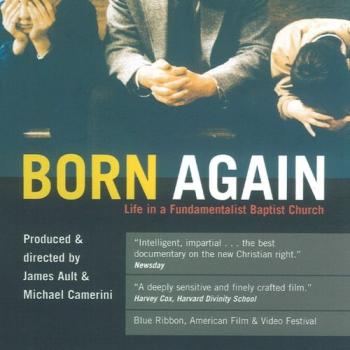Is Arminianism “Reformed?”
A minor controversy exists among Arminian scholars (and some non-Arminian Reformed scholars have chimed in) about whether classical Arminianism can legitimately lay claim to being part of the Reformed theological tradition. The question is this: Was and is Arminianism such a deviation from classical Reformed theology that it ought to be considered something entirely other than Reformed (historically-theologically) or was and is it simply one branch of the larger Reformed tradition?
Well, as with so many similar discussions, in this one everything depends on how “Reformed” is defined. Here I will assume a general definition of classical Arminian theology (as I describe it in Arminian Theology: Myths and Realities): “mere Arminianism” (not necessarily Wesleyan which raises other questions in relation to being Reformed).
Today, anyway, “Reformed” is an essentially contested concept. On one end of the spectrum of defining it, “Reformed” requires affirmation of and adherence to the “three symbols of unity”—The Heidelberg Catechism, the Belgic Confession, and the Canons of the Synod of Dort. By that definition, Presbyterians are not Reformed. (Which is why, for example, the publisher Presbyterian and Reformed is so named.) Everyone agrees that they have much in common, but some Reformed scholars define “Reformed” in such a way as to exclude even Presbyterians.
At the other end of the spectrum of defining “Reformed” is the traditional Lutheran approach. For many “old school” Lutherans (e.g., Casper Nervig in Christian Truth and Religious Delusions) all Protestants are either Lutheran or Reformed with Anglicans being sort of a hybrid. Anabaptists aren’t Protestant. But Methodists are Reformed (in this taxonomy)!
Near the Lutheran end of the spectrum of defining “Reformed” lies the World Communion of Reformed Churches that includes about 116 denominations including (!) the Remonstrant Brotherhood of the Netherlands—the original Arminian denomination with roots going back to Simon Episcopius. “Reformed Baptists” are excluded even if they are five point Calvinists!
Many modern, “moderate” Reformed theologians (i.e., theologians who self-identify as Reformed and are recognized theologians of Reformed churches) sound more Arminian than Calvinist: Lesslie Newbigin, Jürgen Moltmann, Adrio König, Alisdair Heron, Alan P. F. Sell, et al. (My apologies for “outing them” as closet Arminians! I realize they would not want to be so identified but I find their soteriologies much closer to classical Arminianism than to, say, TULIP Calvinism.)
One of the major irritants (for me and many others) about the “Young, Restless, Reformed” movement is its leaders’ and followers’ tendency to identify “Reformed” extremely narrowly—as focused on “the doctrines of grace” (as they call them) meaning T.U.L.I.P. The movement ought to be called “Young, Restless, Calvinist.” Somehow that just doesn’t have the same “ring” as “Young, Restless, Reformed,” though. The problem is that the leading spokesmen for the movement would exclude many more classically Reformed people as not truly Reformed. And yet most of them are not “truly Reformed” by the standards recognized by the World Communion of Reformed Churches! (All of those denominations practice infant baptism.)
Do I call myself “Reformed?” It all depends. First of all, as a historical theologian, I think Arminius and the early Remonstrants were historically-theologically Reformed. They just disagreed with the narrow definition of “Reformed” being touted by the likes of Franciscus Gomarus and Prince Maurice (the power behind the Synod of Dort). The Reformed Churches of the United Provinces (Netherlands) by all accounts did not then (before Dort) have any authoritative doctrinal standards that excluded the Remonstrants who could gladly affirm the Heidelberg Catechism even though they wanted it revised. It was Dort that made Arminianism “heretical” within the Reformed Churches of the United Provinces. And many Reformed theologians around Europe did not agree with Dort; some from England walked out of the Synod when they saw what a kangaroo court it was and how narrowly “Reformed” was being defined there.
Many Arminians distinguish between “Reformed” and “Wesleyan” Arminianism. The difference has to do with the Wesleyan doctrine of entire sanctification. If that’s the watershed, then I would belong on the Reformed side even though I have great respect for my Wesleyan brothers and sisters who strive for perfection.
Yet, in America, largely because of the Puritan influence and Old School Princeton Orthodoxy and the influx of Dutch Reformed immigrants, “Reformed” is generally understood as synonymous with “Calvinist.” In that case, of course, I can’t identify myself as Reformed.
And yet I am more Reformed (historically-theologically) than Lutheran! So when talking to a Lutheran, using his or her taxonomy for distinguishing between Protestants, I would claim to be Reformed.
Personally, I think it would “unmuddy” the waters a lot if baptistic Calvinists would stop calling themselves Reformed. Those who belong to Reformed churches may and should continue to call themselves Reformed, but insofar as they are baptistic (ecclesiastically and in terms of the ordinances) they should call themselves merely Calvinists and not Reformed.
I admit to having a penchant for clear and distinct ideas. “Reformed” is no longer one. When someone says they are Reformed I have very little idea what they mean. I have to ask “in what sense?” If they say “I’m a Calvinist” I have to ask “But what makes you ‘Reformed’?” Then they stare at me as if I’m ignorant when, in fact, it is usually they who are ignorant (about historical theology).














